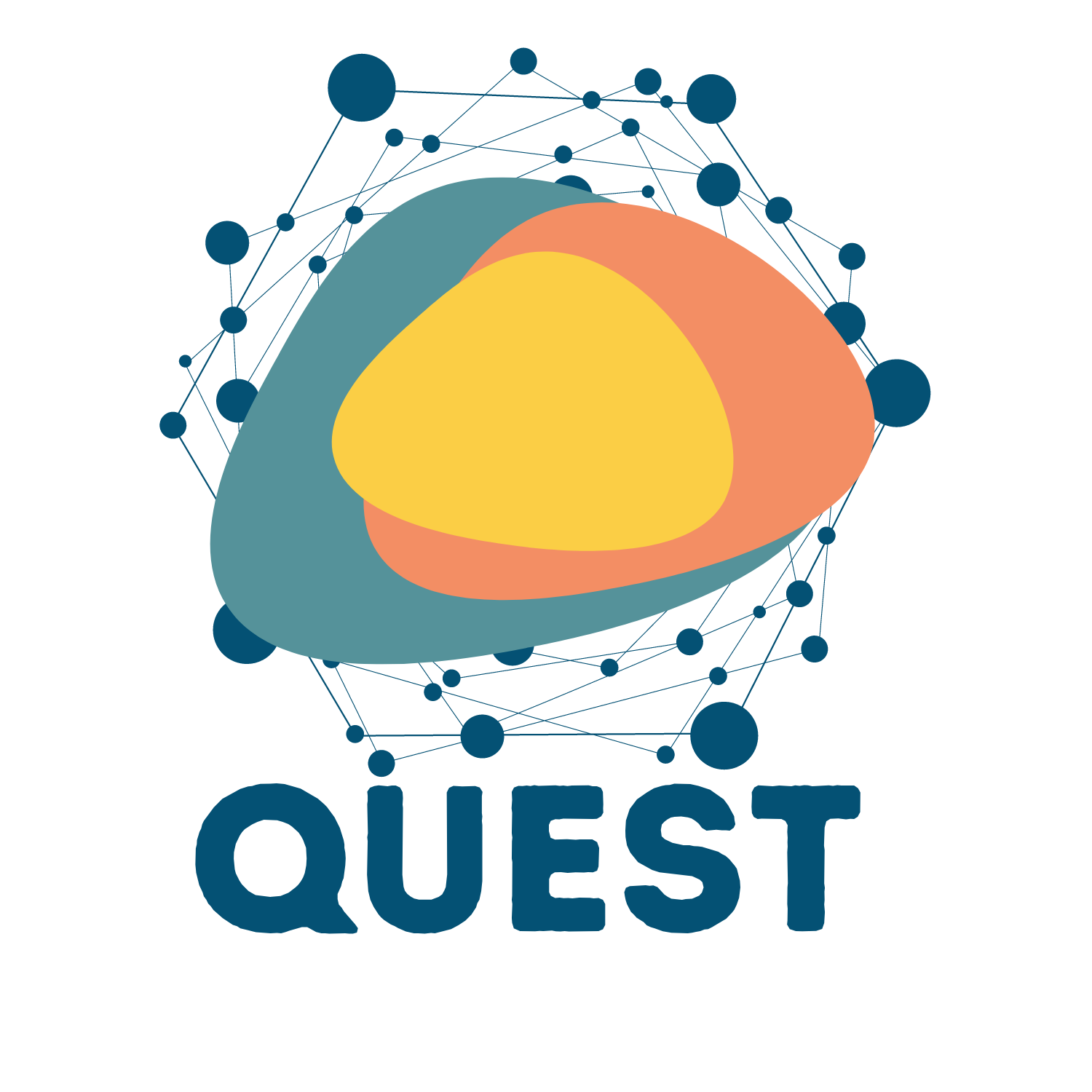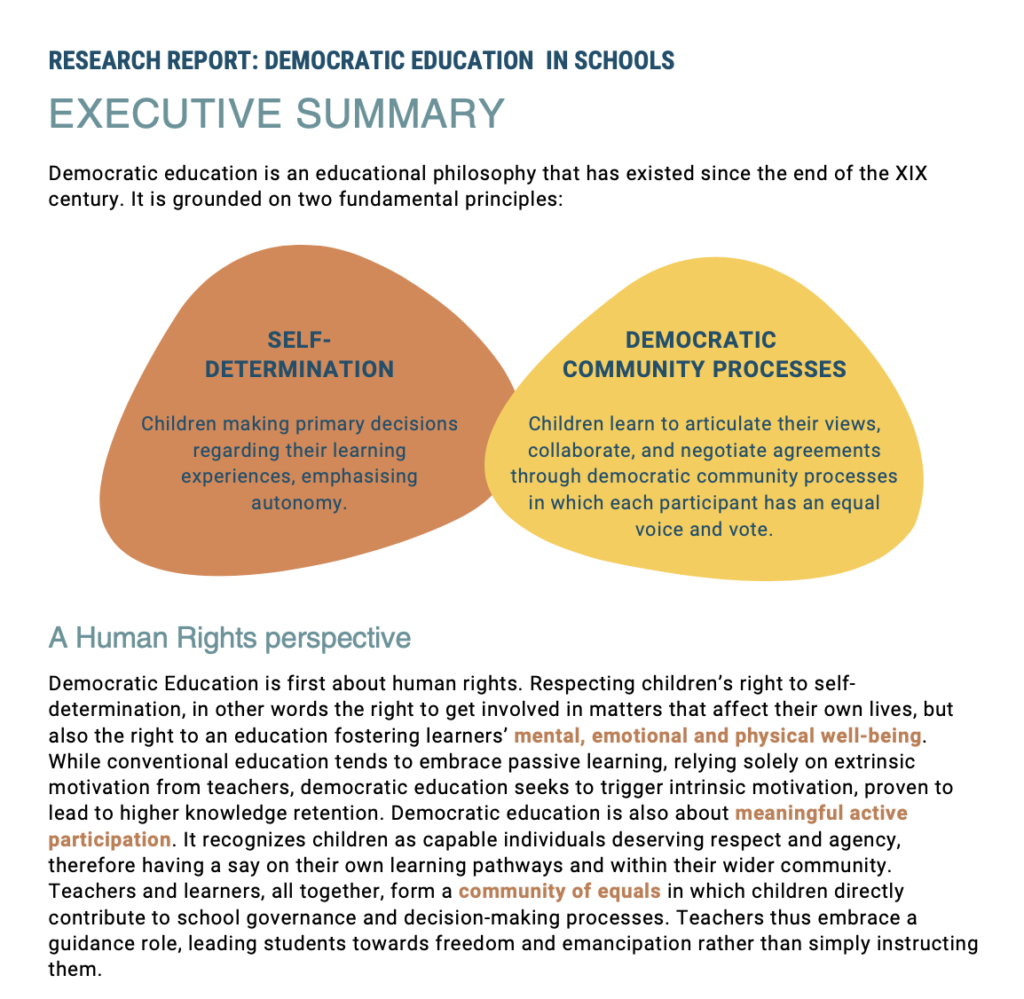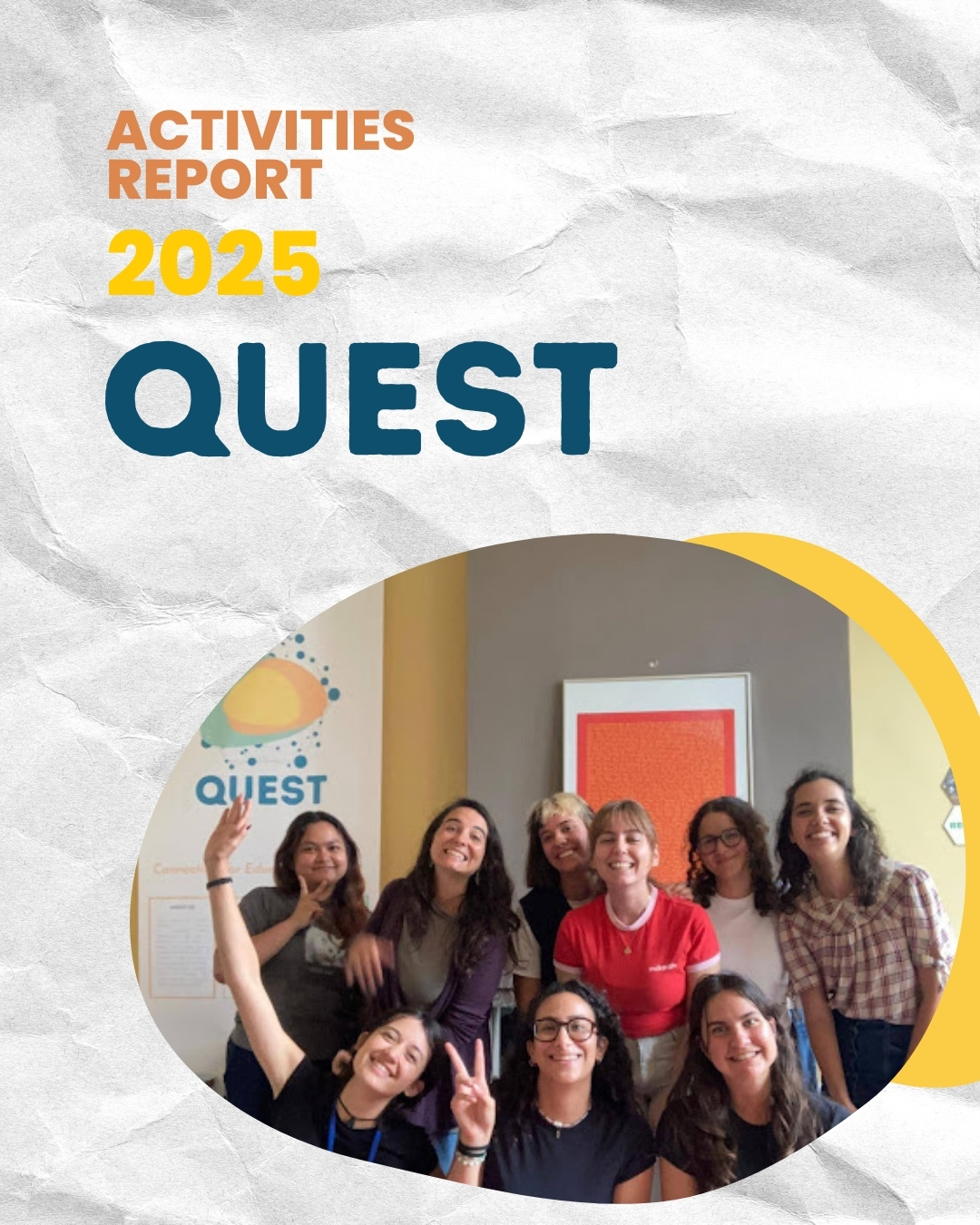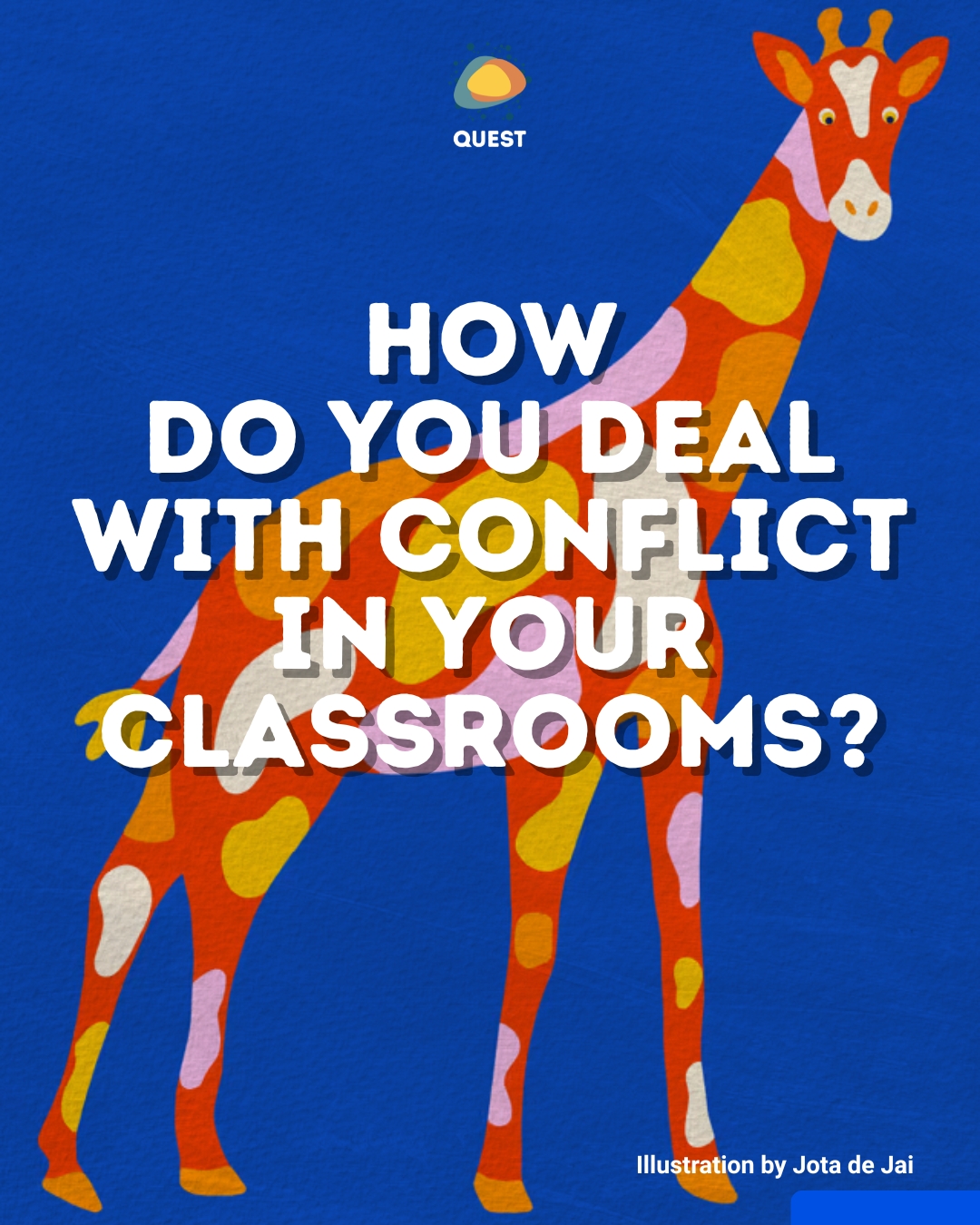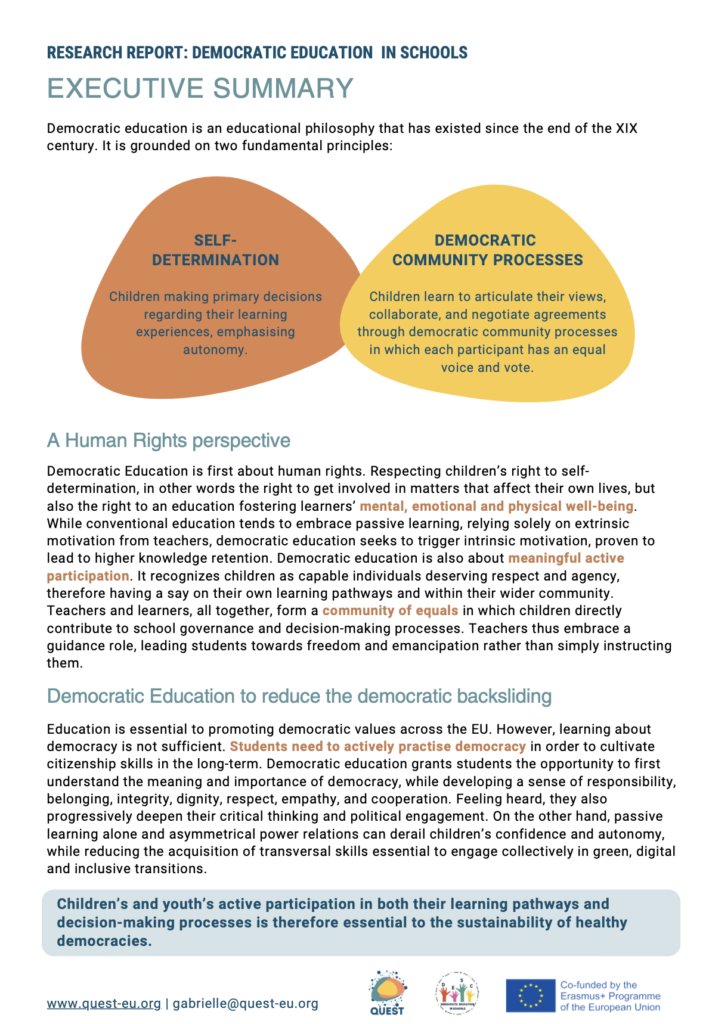
Democratic education is an educational philosophy that has existed since the end of the XIX century. It is grounded on two fundamental principles:
SELF-DETERMINATION
Children making primary decisions regarding their learning experiences, emphasising autonomy.
DEMOCRATIC COMMUNITY PROCESSES
Children learn to articulate their views, collaborate and negotiate agreements through democratic community processes in which each participant has an equal voice and vote.
A human rights perspective
Democratic Education is first about human rights. Respecting children’s right to self-determination, in other words the right to get involved in matters that affect their own lives, but also the right to an education fostering learners’ mental, emotional and physical well-being. While conventional education tends to embrace passive learning, relying solely on extrinsic motivation from teachers, democratic education seeks to trigger intrinsic motivation, proven to lead to higher knowledge retention. Democratic education is also about meaningful active participation. It recognizes children as capable individuals deserving respect and agency, therefore having a say on their own learning pathways and within their wider community. Teachers and learners, all together, form a community of equals in which children directly contribute to school governance and decision-making processes. Teachers thus embrace a guidance role, leading students towards freedom and emancipation rather than simply instructing them.
Democratic Education to reduce the democratic backsliding
Education is essential to promoting democratic values across the EU. However, learning about democracy is not sufficient. Students need to actively practise democracy in order to cultivate citizenship skills in the long-term. Democratic education grants students the opportunity to first understand the meaning and importance of democracy, while developing a sense of responsibility, belonging, integrity, dignity, respect, empathy, and cooperation. Feeling heard, they also progressively deepen their critical thinking and political engagement. On the other hand, passive learning alone and asymmetrical power relations can derail children’s confidence and autonomy, while reducing the acquisition of transversal skills essential to engage collectively in green, digital and inclusive transitions.
Children’s and youth’s active participation in both their learning pathways and decision-making processes is therefore essential to the sustainability of healthy democracies.
Democratic education in the European landscape
Practised since 1859, democratic education has spread throughout Europe. However, due to a lack of funding accessibility and curriculum flexibility, it has mostly been practiced in small, private schools, therefore limiting its positive long-term impact on mainstream education systems. By implementing democratic education within public education systems, a wider spectrum of learners could develop transversal and citizenship skills in the long-run.
Democratic education in public education: A case example
Democratic education has already been integrated within public education systems. For instance, the Suvemäe-TKG school in Estonia, opened in Tallinn in 2019 as a democratic branch within the larger traditional school. There, students have the opportunity to participate in the school’s life and governance. Within weekly school assemblies, the learning process, content and method are discussed and decided jointly with the students. Disagreements are solved and discussed in mediation circles, in which cooperation and emotional skills are shaped.
The school benefits from a negotiated curriculum made of 3 learning arrangements:
- Semi-structured lessons covering core subjects like mathematics, Estonian language, and natural sciences. Workshops, outdoor learning, and curriculum-based lessons are common.
- Independent study projects starting from the 5th grade, with guidance to enhance study skills and develop research projects.
- Participation in clubs and workshops based on individual interests, such as media, English, programming, robotics, financial knowledge, and philosophy.
Finally, school assessments diverge from traditional methods while aligning with the national curriculum. Instead of numerical grading, evaluation relies on ongoing student-coach dialogues focused on individual skills and outcomes. Students self-assess their achievements, collaborating with coaches to refine their learning paths. Throughout the year, assignments are compiled into a study folder, culminating in a thesis. Parents receive regular updates on their child’s progress, and mock exams aid in identifying areas for improvement. State-mandated tests occur at specific grade levels.
